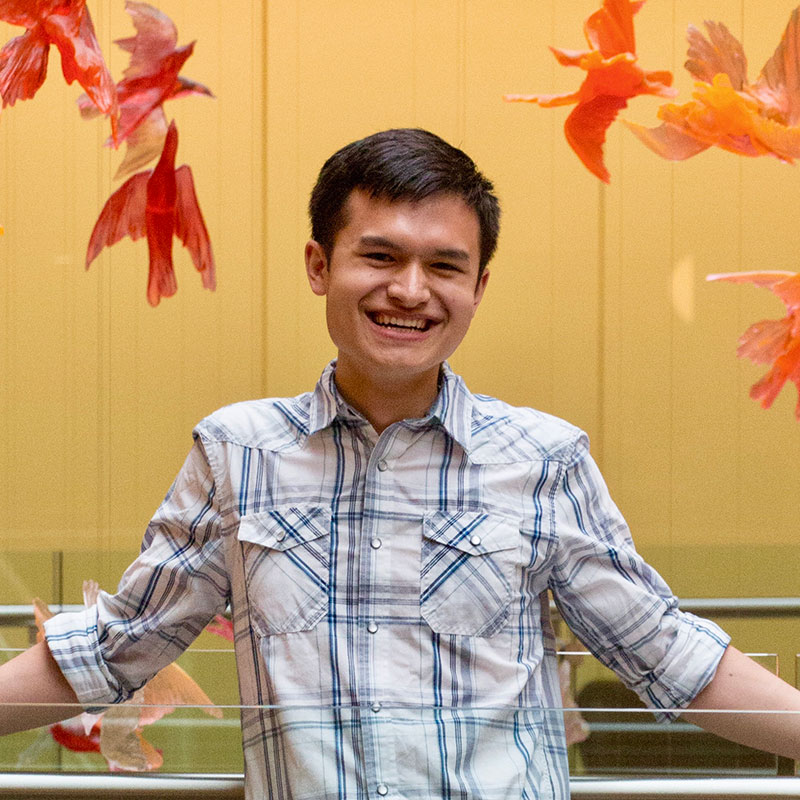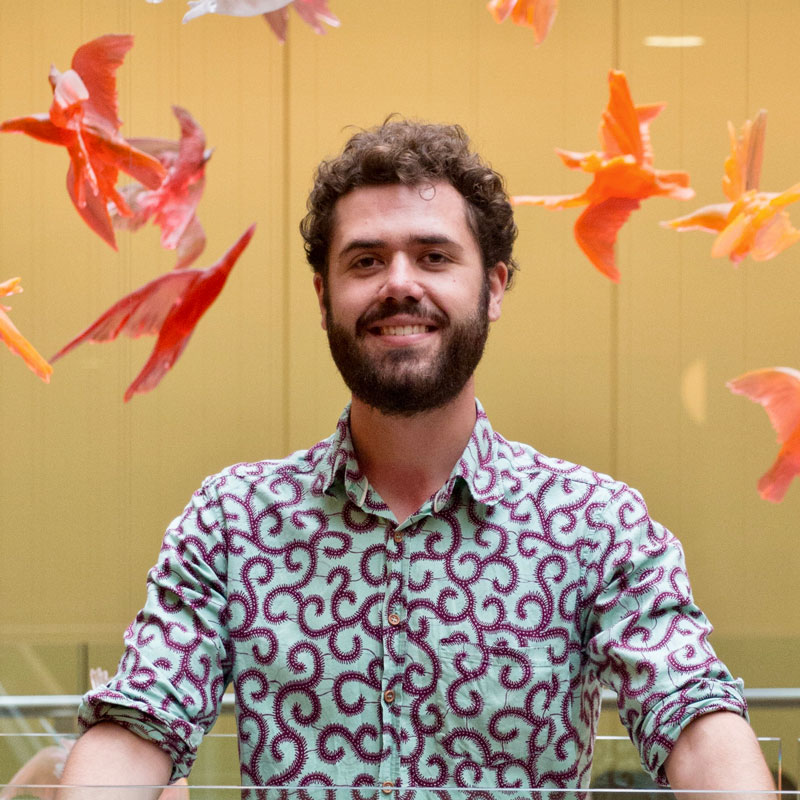Noahsprent (Talk | contribs) |
Helenrensiyu (Talk | contribs) |
||
| Line 19: | Line 19: | ||
position: absolute; | position: absolute; | ||
top: 0px; | top: 0px; | ||
| − | bottom: | + | bottom: 0px; |
| − | left: | + | left: 0px; |
right: 0; | right: 0; | ||
background-image: url(https://static.igem.org/mediawiki/2017/a/a5/T--Oxford--Applieddesign--solidworks4.png); | background-image: url(https://static.igem.org/mediawiki/2017/a/a5/T--Oxford--Applieddesign--solidworks4.png); | ||
background-size: cover; | background-size: cover; | ||
| − | |||
} | } | ||
Revision as of 01:17, 2 November 2017
APPLIED DESIGN
 Alissa Hummer
Alissa Hummer
 Alissa Hummer (Biochemistry)
Alissa Hummer (Biochemistry)Co-leader
She. cruzi
Alissa spends most of her iGEM days split between the wet lab, working with the engineers on mathematical modelling, and doing organizational things because she loves pretty much everything. Her experience in other labs prior to iGEM is invaluable to the team, because she knows all of the tips and tricks for efficient research. Outside of iGEM she enjoys playing football, being in nature, and reading.
 Angela Hellyer
Angela Hellyer
 Angela Hellyer (Biochemistry)
Angela Hellyer (Biochemistry)Wet Lab Co-ordinator & Safety
G. weazli
Angela doesn’t really know how she ended up being in charge of safety, it kind of just happened when she wasn’t looking. Creator of the cake rota, she likes to keep things light, and provides some moral support for when things inevitably go wrong; only to be fixed promptly of course! Outside of iGEM she enjoys food and all things astro-, along with being Zoe F’s main Hogwarts buddy.
 Arthur Norman
Arthur Norman
 Arthur Norman (Biochemistry)
Arthur Norman (Biochemistry)Co-leader
T. freezi
Arthur has been dubbed ‘freezer boy’, and his super powers include being able to organise freezer boxes without them thawing and the ability to tidy away everyone else’s eppendorfs. Arthur spends his time split between working in the lab and coming up with novel ideas for the project. When outside the lab he plays tennis, runs, and drinks pimms, sometimes all three at the same time.
 Chun Ngai Au
Chun Ngai Au
 Chun Ngai Au (Engineering)
Chun Ngai Au (Engineering)Dry Lab Co-ordinator
T. snoozi
Chun likes creating colourful and cool looking graphs on Matlab, although he isn’t totally against putting on a lab coat and pipetting a couple of things every now and again. He put in a lot of work at the beginning of the project to catch up on the biochemistry, but is now as knowledgable as the rest of us. Outside of iGEM, he likes to play Ultimate, sleep, and eat spicy food - even his pizzas tend to have chillies on them.
 Helen Siyu Ren
Helen Siyu Ren
 Helen Siyu Ren (Engineering)
Helen Siyu Ren (Engineering)Dry Lab Co-ordinator
Si. yuzi
As one of the few non-bio students, Helen is learning new things in the wet lab while spending the rest of time staring at her laptop doing wiki pages and trying to implement the complicated model that comes with all of our many parts. She is one of those people who really likes to sit on the floor, where her free time is spent reading, playing bridge, and eating delicious food she made earlier.
 Jei Diwakar
Jei Diwakar
 Jei Diwakar (Biochemistry)
Jei Diwakar (Biochemistry)Wet Lab Co-ordinator & Treasurer
T. schmoozi
Jei’s role means that sending emails and adding SUM functions to Excel have become routine to him. He spends most of his time doing wet lab work, unless he is organising flights and hotels, then he is on the phone all day! Outside of the lab, Jei plays a lot of cricket for the Oxford University Cricket Club and also is a co-founder of the Oxford University Biotech Society.
 John Myers
John Myers
 John Myers (Biochemistry)
John Myers (Biochemistry)Secretary
Oui. cruzi
John keeps track of the team’s regular meetings and is enthusiastic about outreach. Often he can be found helping out in the lab, learning all of the protocols in detail. Outside of iGEM, he rows for his college, plays the violin, and cooks - very useful for the team’s weekly cake rota. He also introduced a large chunk of the team to Bridget Jones, for which we are all eternally grateful.
 Kushal Mansatta
Kushal Mansatta
 Kushal Mansatta (Medicine)
Kushal Mansatta (Medicine)Wiki Co-ordinator & Social Sec
He. curezi
By day Kushal can usually be found browsing the wiki or reminding people to reference EVERYTHING they read; by night he makes sure everyone on the team has fun and eats well. His medical background has been invaluable for our diagnostic track. Outside of iGEM, he enjoys going to the gym and caring for patients at his job on a hospital ward.
 Noah Sprent
Noah Sprent
 Noah Sprent (Biochemistry)
Noah Sprent (Biochemistry)Co-leader
No. shoezi
Noah loves making agendas for meetings and reading about definitely-not-useless features on Benchling when he’s not keeping our lab beautifully clean. Although life outside of iGEM isn’t really life at all, Noah is a co-founder of the Oxford University Biotech Society, tries to do cool things with the Oxford University Gymnastics Club, and has confusing discussions with his philosopher housemates.
 Sumaera Rathore
Sumaera Rathore
 Sumaera Rathore (Biology)
Sumaera Rathore (Biology)iGEM Requirements Co-ordinator
Tea. brewzi
Sumaera puts the 'bio' into 'biochem' and is responsible for ensuring our project ticks all the boxes in the judging booklet so we can really impress the judges with all our hard work. She also knows a lot more about parasites than the rest of us. Outside of iGEM, Sumaera enjoys anything to do with plants, tea, and chocolate. In fact, she brightened up our iGEM desks with a collection of aloe plants!
 Zoë Catchpole
Zoë Catchpole
 Zoë Catchpole (Biochemistry)
Zoë Catchpole (Biochemistry)Outreach & Human Practices
Cant. choozi
Zoe wants to show everyone that synbio is as cool as she thinks it is by designing ‘fun’ activities for outreach, and is key to co-ordinating all of our meetings with experts from across the globe. She is always keen to pitch in with the lab work too. Outside of iGEM she has grade 8 recorder, but unfortunately serenading our E. coli hasn’t yet helped our transformation efficiency!
 Zoe Ford
Zoe Ford
 Zoe Ford (Biochemistry)
Zoe Ford (Biochemistry)Wet Lab Co-ordinator & Social Media
'Wee'. cruzi
Zoe enjoys spending endless hours in the lab pipetting clear liquids from one tube into another. Along with being our Queen of SnapGene, they love taking pictures of everything and everyone to make the prettiest iGEM Instagram account in history. Outside of iGEM they referee quidditch, sing in choirs, and use a lot of their free time in the evenings cross-stitching everything - including our logo!

Dr. George Wadhams
Oxford Department of Biochemistry
George's research interests lie in how bacteria sense and integrate environmental information. His group focuses on understanding in a quantitative manner how multiple, homologous pathways operate in individual cells and how the components of these pathways can be used to create synthetic pathways.
George has been mentoring Oxford iGEM teams since they were founded in 2014.
Oxford Department of Biochemistry
George's research interests lie in how bacteria sense and integrate environmental information. His group focuses on understanding in a quantitative manner how multiple, homologous pathways operate in individual cells and how the components of these pathways can be used to create synthetic pathways.
George has been mentoring Oxford iGEM teams since they were founded in 2014.

Dr. Nicolas Delalez
Oxford Department of Engineering
Nick's research interests include synthetic biology and its biophysics of molecular machines.
Nick is the main person we go to when we are stuck on something in the lab. He can troubleshoot everything from a unsuccessful PCR to a contaminated plate of cells.
Oxford Department of Engineering
Nick's research interests include synthetic biology and its biophysics of molecular machines.
Nick is the main person we go to when we are stuck on something in the lab. He can troubleshoot everything from a unsuccessful PCR to a contaminated plate of cells.

Prof. Antonis Papachristodoulou
Oxford Department of Engineering
Antonis' research interests include systems and synthetic biology, network systems, aerospace systems and flow control, and convex optimisation. Furthermore, he works on modern control theory, robust stability analysis and design, as well as nonlinear dynamical systems and Lyapunov stability.
Oxford Department of Engineering
Antonis' research interests include systems and synthetic biology, network systems, aerospace systems and flow control, and convex optimisation. Furthermore, he works on modern control theory, robust stability analysis and design, as well as nonlinear dynamical systems and Lyapunov stability.

Harrison Steel
Oxford Department of Engineering
Harry is a PhD student whose research interests include control engineering and its application to Synthetic Biology, as well as mathematical tools for analysis of biological systems. Furthermore, he works on the design and development of new tools and hardware for use in Biological research.
Oxford Department of Engineering
Harry is a PhD student whose research interests include control engineering and its application to Synthetic Biology, as well as mathematical tools for analysis of biological systems. Furthermore, he works on the design and development of new tools and hardware for use in Biological research.

Prof. Judy Armitage
Oxford Department of Biochemistry
Judy Armitage is interested in the dynamics of bacterial sensory transduction and the control of bacterial motility. In particular, her research group focuses on the communication between the sensory and adaptation mechanisms of the two pathways as a model for network sensory integration in general.
Oxford Department of Biochemistry
Judy Armitage is interested in the dynamics of bacterial sensory transduction and the control of bacterial motility. In particular, her research group focuses on the communication between the sensory and adaptation mechanisms of the two pathways as a model for network sensory integration in general.






















